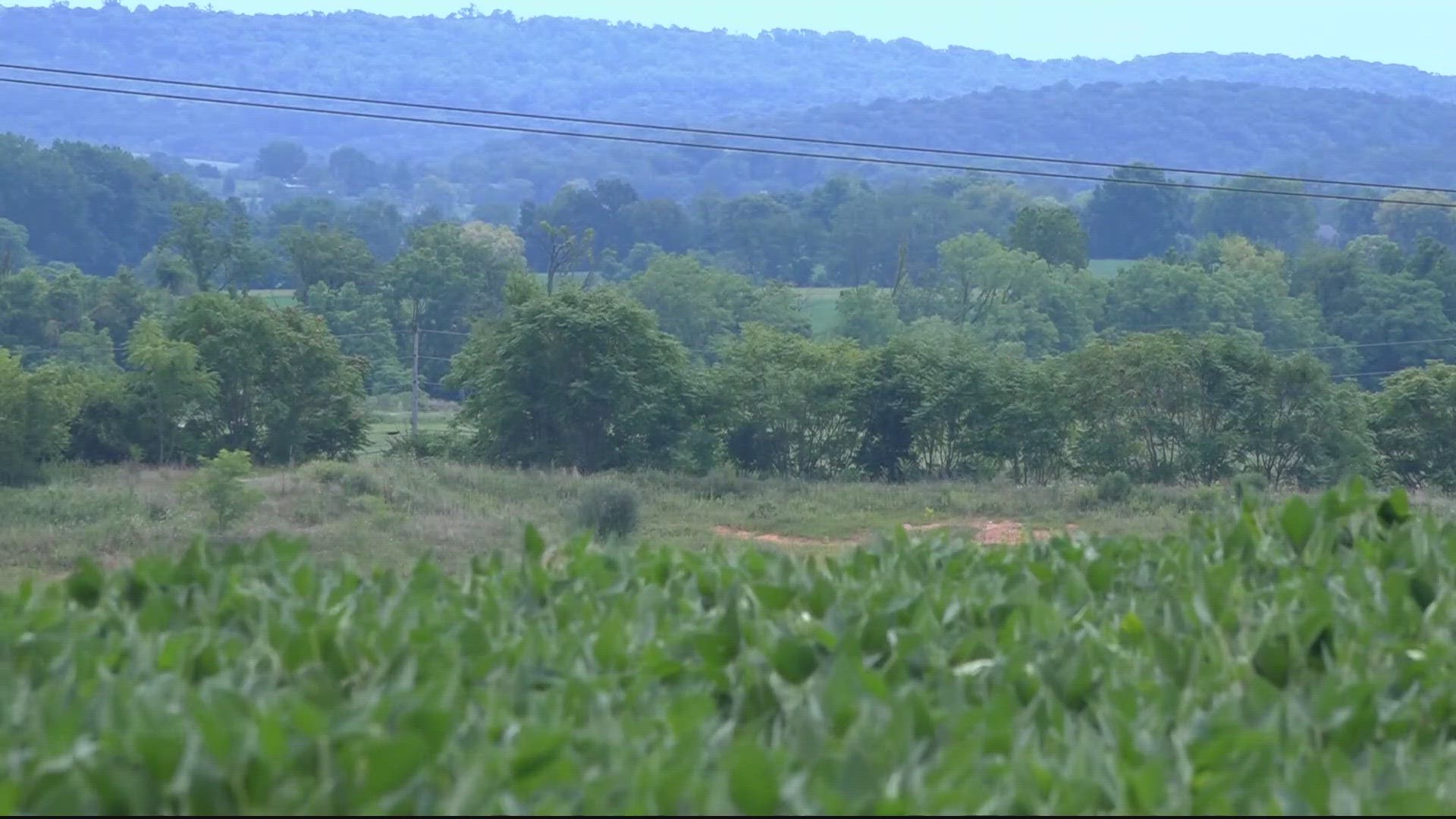FREDERICK COUNTY, Md. — Controversial data center development has skipped across the Potomac River from Northern Virginia to Rural Frederick County, Maryland.
But the state’s first gigawatt-scaled data center project has already hit some bumps in the road.
Since developers Quantum Loophole broke ground near Adamstown, Maryland in 2022, some site development construction has been shut down by Maryland's Department of Environment over water pollution concerns.
Power supplier First Energy has also been put on hold by county planners seeking more information on impacts.
Maryland's Public Service Commission is also scrutinizing permits needed to install 168 back-up diesel generators capable of producing 500 megawatts of power.
Quantum Loophole purchased 2,100 acres of industrial-zoned land in southern Frederick County in 2021 for $100 million.
According to announcements from the company, the goal is to build a data center complex capable of consuming a gigawatt of electricity, or enough to power and 750,000 homes.
The property was previously owned by Alcoa, and is the site of an abandoned aluminum smelting plant which sits on about 400 badly polluted acres of the 3-square-mile property. The rest of the land is largely farm and forest.
Local farmer and environmental activist Steve Black of the Sugarloaf Alliance says Quantum Loophole’s plans to cover 3/4 of the acreage with data centers is misguided.
He called the delays for more scrutiny important.
“The effect is to tap the brakes," Black said.
"We just have to go across the river and we can see in Northern Virginia all of the downsides of data center development. We want to make sure that we can get the benefits here to the community from data centers without bringing on unnecessary impacts. So things like the noise from data centers, the light pollution, the questions about converting prime farm land into data center ground -- these are big important questions and the county needs to take the time so that the community can be involved to answer those questions.”
Supporters of Quantum Loophole’s project include community leaders like Rick Weldon who is the President of the county’s Chamber of Commerce and a former state delegate.
Weldon points to the abandoned aluminum smelting factory that’s ripe for responsible clean up and redevelopment.
“Remember, this used to be an aluminum smelting plant, one of the dirtiest, heavy industries in the state of Maryland," Weldon said.
"After that, it was going to be a Duke Energy Power generation plant that we stopped because it wasn't right."
Weldon said Quantum Loophole's master plans provide for a buffer zone around the property to keep it separate from any future residential developments that might grow into the largely rural section of the county.
"I think it makes sense," he said.
Quantum Loophole reports the project is the nation's first data center complex with a master plan.
About 500 acres of the 2100 acres will be reserved as a buffer zone," according to a company spokesperson.
A fiber optic line tunnel has been dug under the Potomac River into Northern Virginia to tie future data center development in Frederick County to the industry's epicenter around Dulles.
Opponents acknowledge that the data center development's current problems are not insurmountable and that the project is going to happen.
However they aim to hold Quantum Loophole to its environmental promises and stop the spread of similar data farms into other parts of the county, according to Black.

